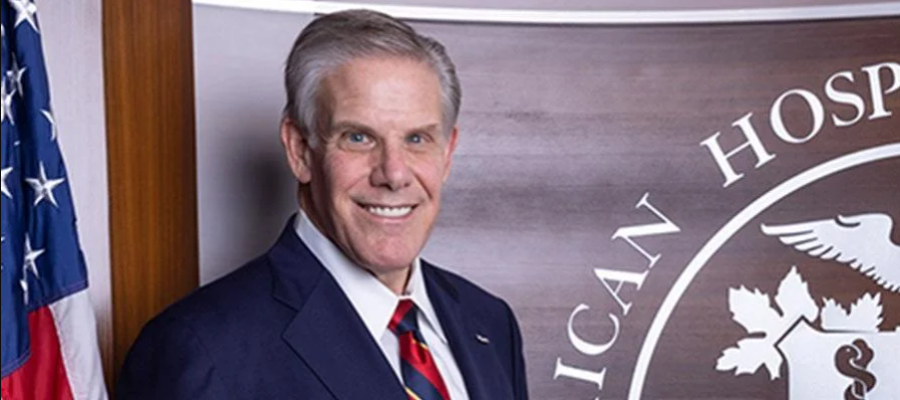Ensuring the Health of Our Care Teams to Ensure the Health of Our Nation

There is no doubt that America’s aging population will necessitate changes to care models and require new care solutions. The good news is our field is coming at this challenge already backed by some of the most passionate, dedicated, talented and caring people at work anywhere in the world.
Every person who works in a hospital or health system is part of the care team. That includes individuals who provide care directly to patients, ensure a clean environment and safe facility, manage complex operations and systems, and contribute to many other important aspects of providing 24/7 care.
These care teams provide selfless, dedicated, high-quality care to patients and communities despite the emerging and enduring challenges and stressors they face. And our nation’s caregivers deserve our full support so they can continue to do what they do best: provide healing, hope and health to patients and communities.
Yet as hospitals and health systems strive to provide that support, the combination of an aging population’s increased demand for health care services, a surge in caregiver retirements and the continued strain on hospitals’ finances mean that leaders are moving in bold, innovative new directions to build and sustain their teams.
Hospitals and health systems are focused on enhancing support and fostering resilience among a stretched-thin, post-pandemic workforce. Hospitals are investing in artificial intelligence technology and tech skills development to alleviate burden and enhance flexibility.
Many also are reimagining care delivery models; expanding training and upskilling options; bolstering workforce engagement and well-being through a variety of initiatives; and creating innovative new entry paths to health care careers. In addition, hospitals and health systems are establishing partnerships to design and implement long-term solutions.
A key pillar of the AHA’s Strategic Plan is Addressing Workforce Challenges in the Now, Near and Far. As part of this effort, this week we released the AHA’s 2025 Health Care Workforce Scan, an annual snapshot of America’s hospital and health system employment, based on reports, studies and other data sources from leading organizations and researchers. The scan also offers valuable insights and practical recommendations from health care leaders and experts to guide hospitals and health systems along this journey.
The Workforce Scan can be used as a roadmap for navigating familiar and emerging workforce challenges, while prioritizing employee well-being in core organizational strategies. Please visit our webpage for a number of other workforce well-being resources.
While the AHA continues to provide the field with tools and resources, we also remain engaged with Congress and the regulatory agencies to advocate for policies that will support today’s health care teams and ensure a future pipeline of health care professionals to meet the nation’s demands for care.
Caregivers work every day to make a difference in people’s lives. The AHA will continue to provide the field with tools, data, successful practices and strategies to support our workforce and advance health in America.

